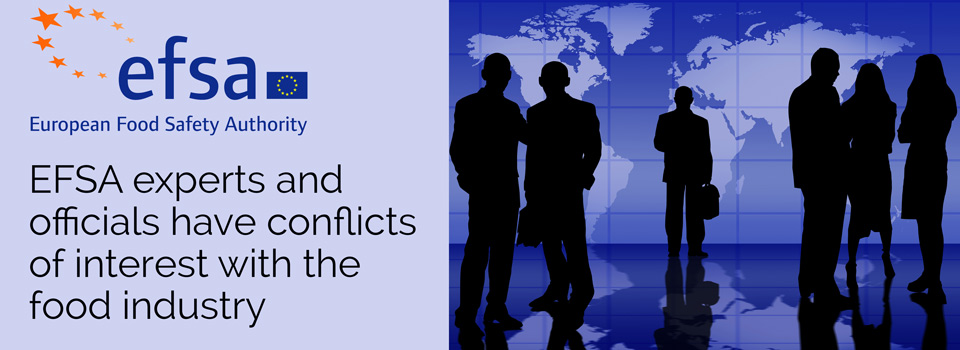The European Food Safety Authority (EFSA) is charged with giving scientific advice to the regulators of pesticides, genetically modified (GM) foods, and food contaminants and additives, in the interests of protecting public health. But some prominent EFSA experts and officials have conflicts of interest, holding positions in organisations funded by the same companies whose products they help regulate.
This report shows that over a period of many years, influential EFSA managers and experts have been heavily involved with a US-based organisation called the International Life Sciences Institute (ILSI), which is funded by multinational pesticide, chemical, GM seed, and food companies.
Publicly funded regulators in the EFSA, as well as in US regulatory agencies, have developed a cosy relationship with ILSI. They collaborate with ILSI in workshops and conferences that work on redesigning the risk assessment processes under which ILSI member companies’ products are evaluated for safety.
EFSA regulators also collaborate with ILSI affiliates in publishing papers in scientific journals. These papers do not report the outcomes of actual research, but instead propose changes to risk assessment based on the outcomes of ILSI workshops and projects, citing as their authority other ILSI and industry-generated publications.
ILSI cultivates an image of independent scientific inquiry and constructive engagement with government-funded regulators. But its proposals on risk assessment follow a trend of making safety testing procedures less rigorous and cheaper for industry – at the expense of public health and the environment. They have already made their way into influential EFSA Opinions and Guidances on the regulation of pesticides, chemicals, and GM foods.
This report calls for EFSA to cease participating in privileged access meetings and projects on risk assessment with the industry it is paid to regulate. In addition, EFSA must make a ‘clean sweep’ of ILSI and other industry influence from its management board and scientific panels.
Update June 2011: In response to the release of this report, the European Court of Auditors invited us to submit evidence for its investigation into conflicts of interest in EU agencies, potentially including EFSA. We submitted the report as evidence.
Europe’s pesticide and food safety regulators – Who do they work for?
By Claire Robinson
Published by Earth Open Source, April 2011

